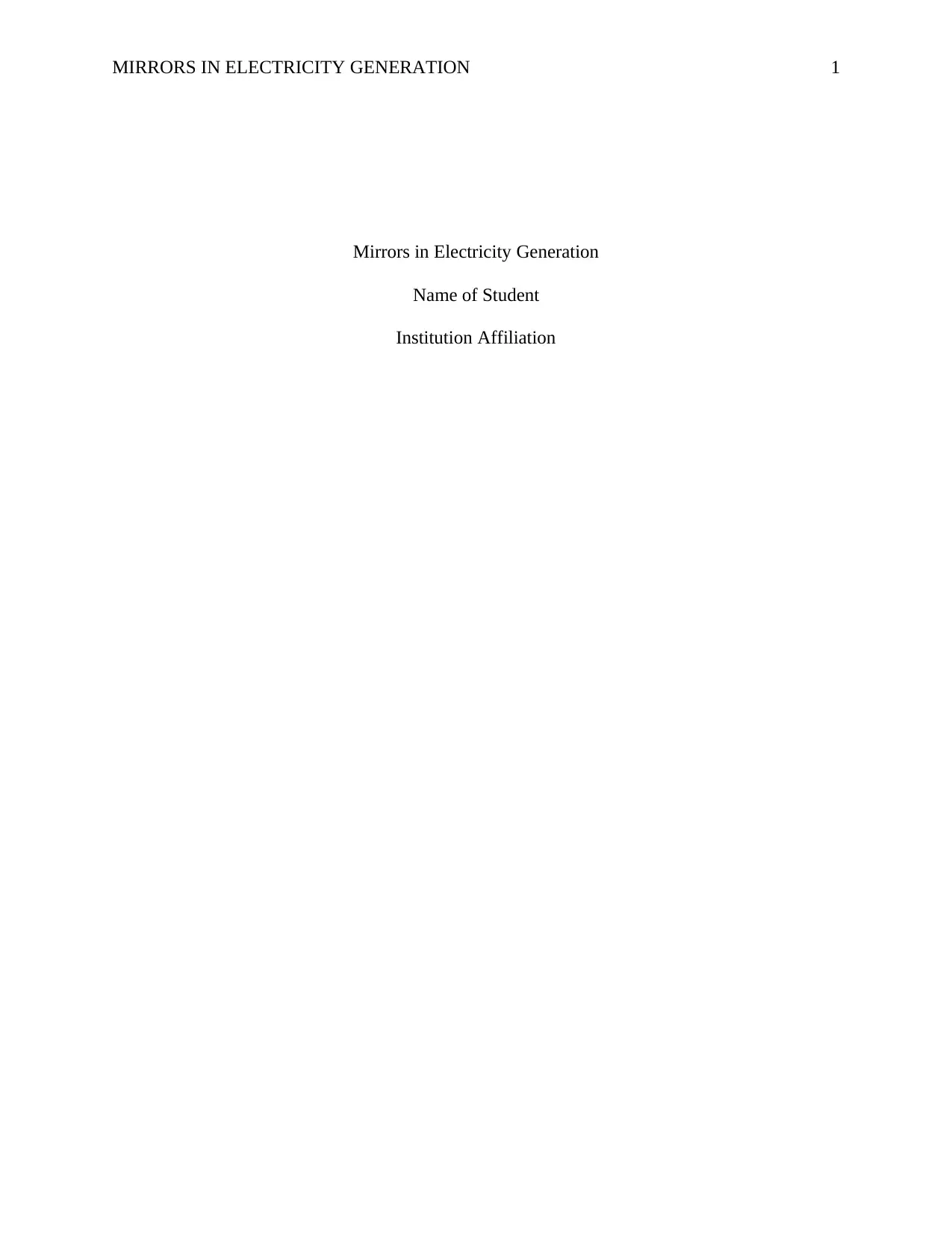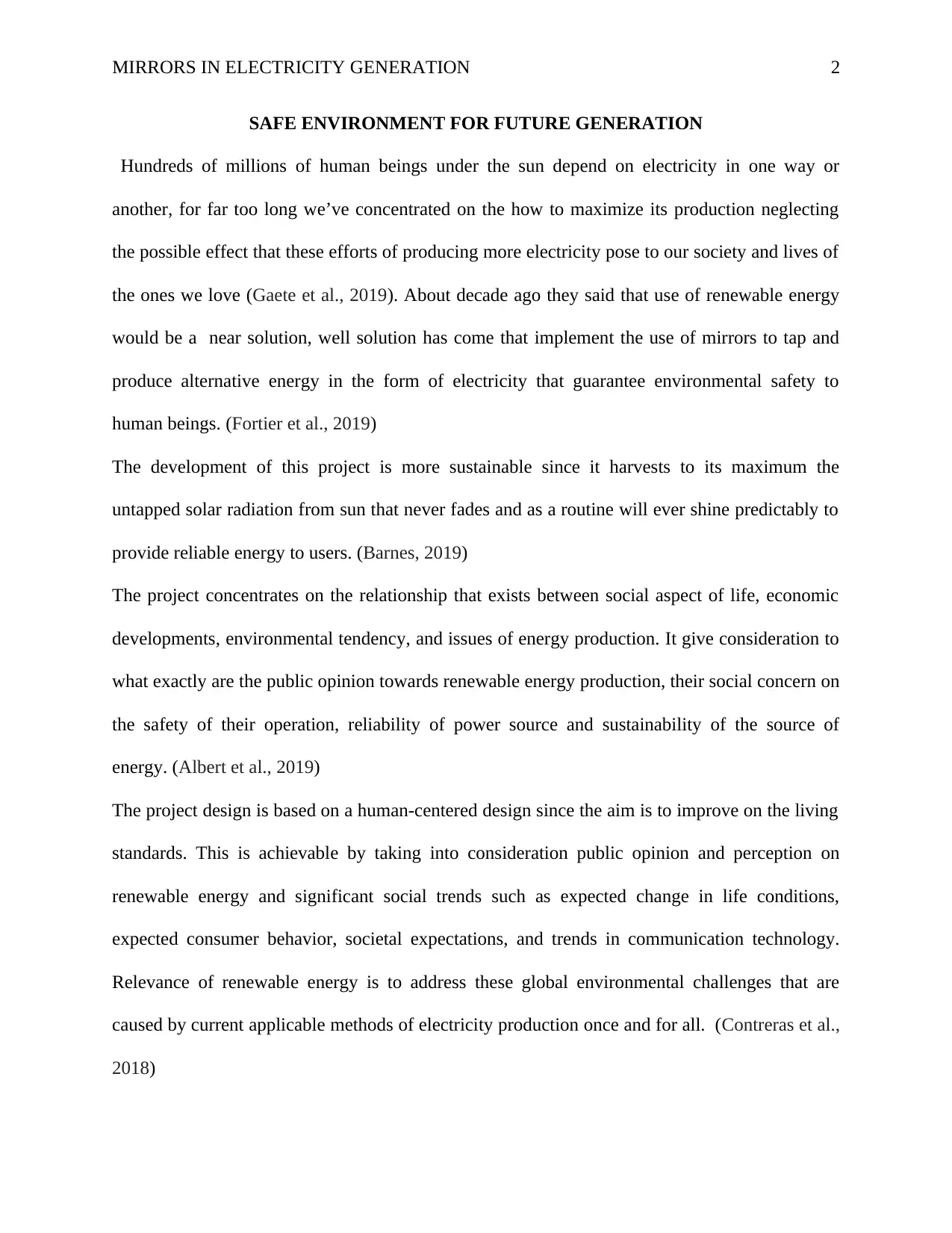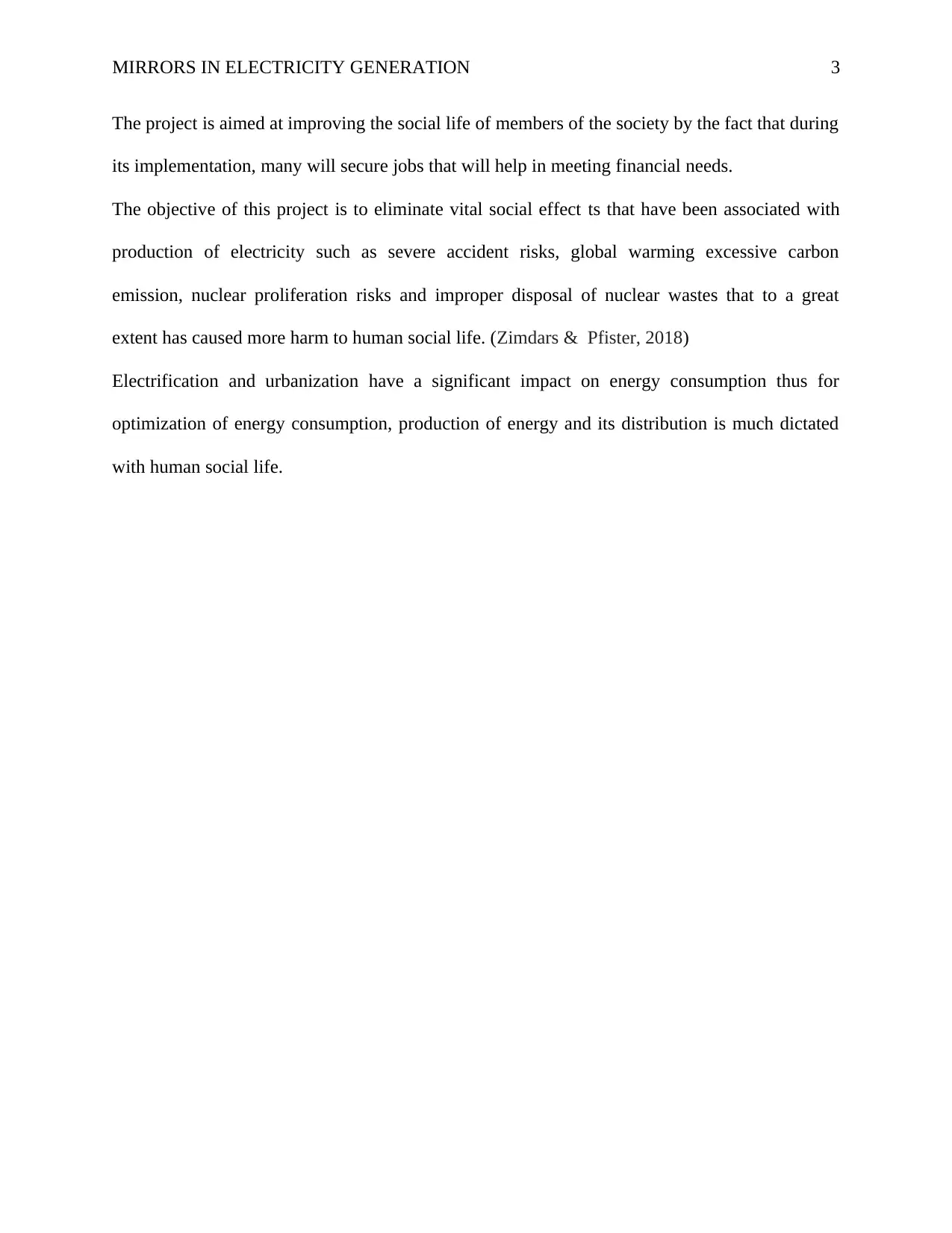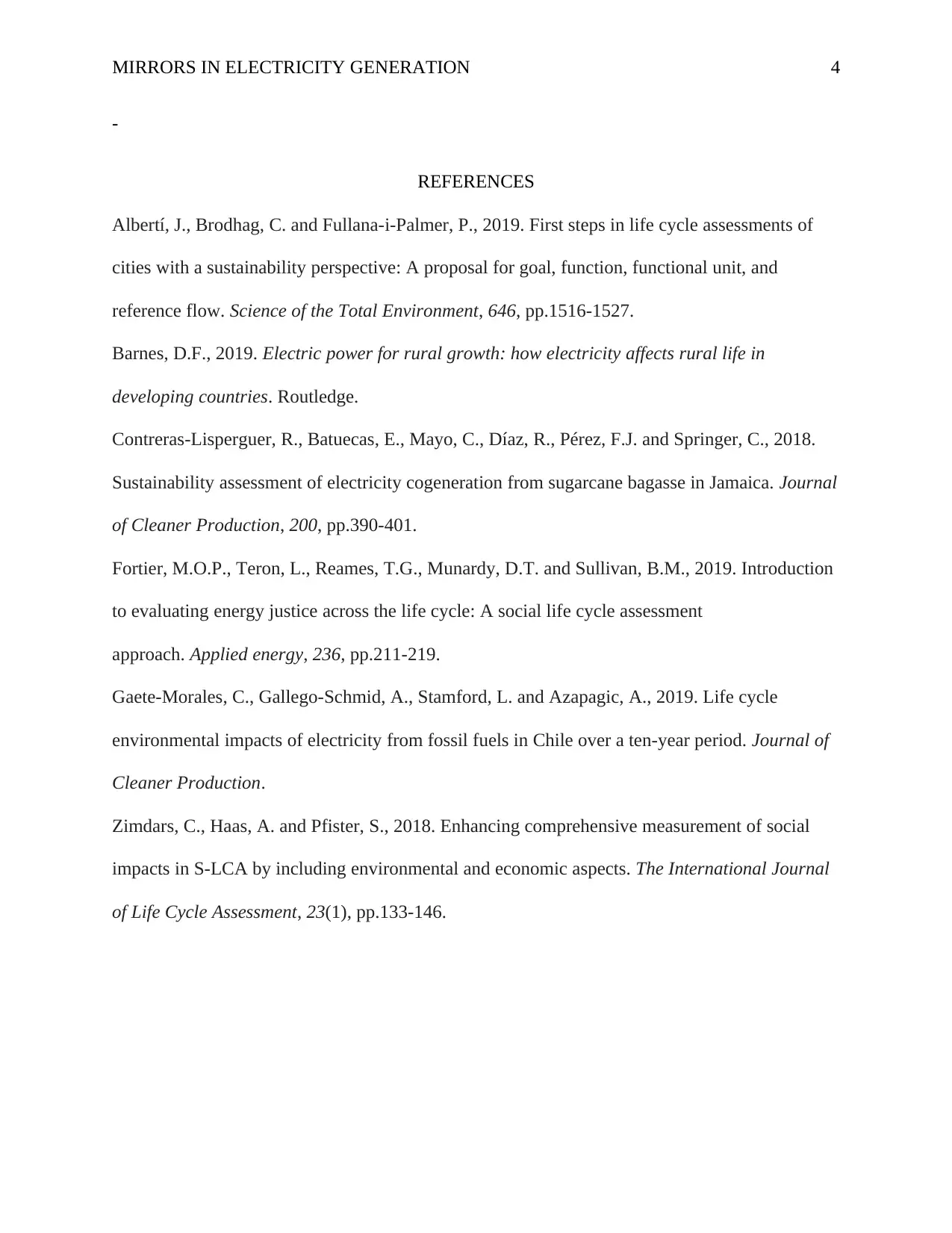Environmental Impact of Electricity Generation: Mirrors as Solution
VerifiedAdded on 2022/10/13
|4
|718
|10
Report
AI Summary
This report examines the application of mirrors in electricity generation as a sustainable and environmentally friendly alternative to traditional methods. It emphasizes the importance of renewable energy sources, particularly solar radiation harnessed through mirrors, to reduce the negative impacts of conventional electricity production. The project focuses on the relationship between social, economic, and environmental factors, considering public opinion, safety concerns, and the reliability of power sources. The human-centered design approach aims to improve living standards by addressing global environmental challenges like global warming and carbon emissions. The report highlights the potential of mirrors in electricity generation to create jobs, eliminate accident risks, and mitigate the hazards of nuclear proliferation, contributing to a safer and more sustainable future. The report also references several studies that support the project's claims regarding sustainability, social impact, and environmental benefits.
1 out of 4











![[object Object]](/_next/static/media/star-bottom.7253800d.svg)